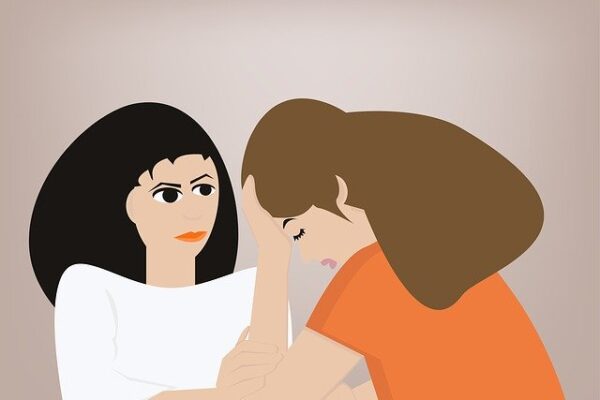By an Intern
What is bullying ?
The term bullying refers to the behaviour of a person who hurts or frightens someone smaller or less powerful, often forcing the person to do something they do not want to do. In other words, bullying is the force, coercion, hurtful teasing or threat giving rise to harmful consequences to the bullied person. The bullying behaviour is often repeated and habitual. Bullying is the cause of the power imbalance between two persons. Thus, leading to the powerful oppressing the weaker person.
Bullying can happen to any student; some children are more likely to be bullied than others. Vulnerable groups include students with disabilities or special educational needs, lesbian, gay, bisexual, transgender or intersex students and those perceived to be LGBTI, and students of a culture, race or religion that differs from the main culture, race or religion at the school.

Why do Children Bully?
Most of the students get bullied because of their differences, mostly due to their looks, caste, religion, race, intelligence, class, sexuality, abilities and many more. Sometimes bullying can be caused for just being at wrong place at wrong time.
- Some bullies have unstable family relationships that starves them of love and affection of parents, thus they try to gain attention from other people outside house by hook or crook. The children who bully are often insecure and unhappy. They tend to carry out their mental frustration on others just for their inability to handle the situation.
- Obsession of students with their role models can lead to bullying just because they want to copy them.
- One of the major causes of bullying is the sense of jealousy. Children often run by the factor of comparisons; they feel insecure about their qualities because someone else is better than them. Some children try overcome this insecurity by harming others.Sometimes bullying is done just for fun and the felling of power and superiority.
- They hope to use it as a way to make people be their friend. Children lacking friends often find it cool to bully others and show their capabilities.

Impact of Bullying on Children
Being bullied makes young people incredibly insecure: When children are being bullied, they constantly feel insecure and on guard. Even if they not actively being bullied, they are aware it could start anytime. It has a big mental and emotional impact—they feel unaccepted, isolated, angry, and withdrawn. They always wondering how they can do better and how they can escape a bully’s notice.
Students being bullied are most likely to get anxiety and panic attacks, thus leading to depression in long run. Bullying mentally ruins a child’s self-concept and self-esteem. They start questioning their existence and have very low self-confidence.
Excessive bullying not only harms a child mentally but also physically, leading to weakness, wounds, deep injuries. Physically they are drained and try to avoid works requiring physical work. They feel lethargic and lack motivation to do their daily activities.
Children isolate themselves from the outer world, sensing people might bully them just like their bullies. Self-isolation affects their socialization skill, that later in future makes it hard for them to communicate with coworkers and peers.
As they isolate themselves from outer world, it gets hard for family members to understand the child’s problem as a result the family blames the child for his ill behaviours and weakness eventually making the child fall in deep pits of the feelings of hopelessness and helplessness.

How to Control Bullying?
The very first step towards helping children is to create awareness, parents and teachers should educate children about bullying. So that the child is ready to talk openly about the bullying without getting ashamed of it. Once they know what bullying really is, they will be able to identify the bullying cases and to help the bullied person.
Parents should openly talk about bullying, share their experiences with children so that the child would be open to speak up when they see or experience it. In other words, parents should be well involved with their child’s life.
Asking children questions like, “how was your day today?” would help parents to get a general picture of the child’s class environment. Children tend to share every single detail thus it helps to know what actually the child feels, this particularly helps in early identification of bullying cases not only for own child but also for other children.
Teaching children values like empathy, helpfulness, kindness is a help for other bullied children. Enrolling children in various cocurricular activities helps them to develop self-confidence, they know their self-worth and would stand for themselves.
Trying to be role models for the children; children are fast learners they learn everything they see. When they see their parents have good etiquettes, they too imitate their parents. This led to development of good personality of a child.
Bullying can be prevented by awareness; society should preach great quotes of famous people to children. Some of the quotes are: –
- “Be kind for everyone you meet is fighting a hard battle.” – Plato
- “I would rather be a little nobody, than to be an evil somebody.”– Abraham Lincoln
- “Strong people stand up from themselves. But the strongest people stand up for others.”
Bullying can be uprooted if families start truly educate their children, teaching them values and treating them as an individual.
“If we stop creating bullies no one will ever get bullied.”
For any information you can contact Heart2Mind at contactus@heart2mind.com or +91-8595752152.



